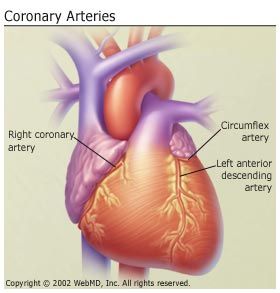

Ultimately, it may be that anxiety following an ACS may be more likely to be transient than anxiety measured during a period of clinical stability. In sensitivity analyses, there were no significant relationships between anxiety and cardiac health when anxiety was measured in the 2 months following an ACS however, when anxiety was measured in patients with stable CAD, anxiety was associated with poor outcomes in nearly all analyses. However, when adjusting for medical and psychological covariates, nearly all of these relationships became non-significant, suggesting that while anxiety may be a good marker of poor cardiac health, other medical and psychological factors may actually explain much of the relationship between anxiety and outcomes. In a recent meta-analysis of 44 studies, anxiety was significantly associated with poor cardiac outcomes, including recurrent cardiac events and mortality, in unadjusted analyses. In patients with established CAD, the literature regarding the relationship between anxiety and cardiac outcomes is similarly mixed. While the overall findings were significant, it should be noted that only 10 of the 20 studies found a significant relationship between anxiety and incident CAD in multivariate analyses, suggesting that there are heterogeneous findings in the literature regarding this relationship. In a 2010 meta-analysis including 20 studies and nearly 250,000 patients, Roest and colleagues found that anxiety, controlling for other medical variables when possible, led to a 26% increased risk of incident CAD. In patients without existing cardiac disease, anxiety has been linked to the subsequent development of CAD. However, when present in excess or for extended periods of time, anxiety is considered to be detrimental for psychiatric and overall health.Īnxiety has been associated with the incidence, and in some cases progression, of cardiovascular disease. Anxiety may be a normal response to a stressful situation, such as an acute cardiac event, and if anxiety prompts an individual to engage more in treatment (e.g., exercise regularly, adhere to medications), it may be beneficial. The relationship between anxiety and cardiovascular health is complex. Īssociations between anxiety and cardiovascular health Finally, among patients who have undergone implantation of an implantable cardioverter defibrillator to prevent the development of lethal arrhythmias, elevated anxiety is present in approximately 20-40%. Anxiety also affects approximately 20% of patients with more advanced HF who require implantation of a left ventricular assist device to support their cardiac function.


In a recent meta-analysis of 38 studies, Easton and colleagues estimated that 32% of patients with heart failure (HF) experience elevated levels of anxiety, and 13% meet criteria for an anxiety disorder. Īnxiety is common in patients with other forms of heart disease as well.

In this population, 25% of patients experience elevated levels of anxiety pre-procedure, with many having a reduction in symptoms in the months following surgery. Research has revealed similar prevalence rates in patients with CAD awaiting coronary artery bypass graft (CABG) surgery. While post-ACS anxiety may be transient for some patients, in half of cases anxiety persists for up to 1 year post-event, suggesting that for many patients with heart disease, anxiety is a chronic condition. Following an ACS, 20-30% of patients experience elevated levels of anxiety. Further study is needed to determine whether interventions to treat anxiety disorders ultimately impact both psychiatric and cardiovascular health.Īnxiety is common in patients with cardiovascular disease, such as coronary artery disease (CAD). Fortunately, pharmacologic and psychotherapeutic interventions for the management of anxiety disorders are generally safe and effective. Given the associations between anxiety disorders and poor cardiac health, the timely and accurate identification and treatment of these conditions is of the utmost importance. Both physiologic (autonomic dysfunction, inflammation, endothelial dysfunction, changes in platelet aggregation) and health behavior mechanisms may help to explain the relationships between anxiety disorders and cardiovascular disease. Anxiety disorders are associated with the onset and progression of cardiac disease, and in many instances have been linked to adverse cardiovascular outcomes, including mortality. Anxiety and its associated disorders are common in patients with cardiovascular disease and may significantly influence cardiac health.


 0 kommentar(er)
0 kommentar(er)
